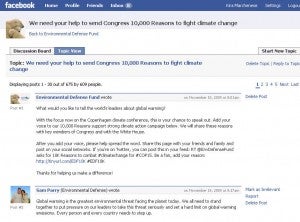A recent dinner guest revealed that he drives eight blocks to work each day, rain or shine. That’s eight short blocks. The guy is a healthy 20-something. Some days it takes him more time to drive than it would take him to walk.

How can we avoid the meter and be greener?
So why does he drive no matter what? He loves free parking.
See, at work his employer pays for his parking. If he kept his car at home during the day, he’d have to pay $100 a month to park in the lot linked to his apartment, or even more to park at another lot. Instead, every evening he drives back home, parks near his apartment complex after city street parking restrictions have expired, and wakes up the next morning to drive eight blocks to park for free at work.
Except that it isn’t really free. The rest of us pick up part of the costs of his parking habit–costs like health–threatening air pollution, earth-damaging greenhouse gas emissions, and road wear and tear.
That’s just a short list of parking costs. UCLA Professor Don Shoup has brilliantly established that parking costs everyone and that parking costs are hidden in nearly everything, from land values to groceries. He has also established that there are smart solutions, and most revolve around revealing the real costs of parking and pricing parking so as not to make everyone else pay for one driver’s decision to drive and park.
One of those solutions is parking cash-out. The idea is that an employer who wants to provide a perk to employees would provide a choice, instead of giving everyone a parking space. The choice would be between the parking spot or the cash. Employees could then use the cash to leave the car at home and spend the money on transit, a new bike helmet, or really comfortable walking shoes. The cash-out is counted as income, but there are some federal tax deductions for cash-out spent on transit or vanpools, and in some cases certain state tax deductions, too.
Parking cash-out programs work where they’re offered. Statistics range, depending on the location’s alternate transportation options, from a few percent to nearly 40 percent of employees who opt for the cash when it’s offered. As a result, the employer gets happier employees and reduces the number of parking spaces needed in the lease. Everyone gets a bit cleaner air and less traffic.
Cash-out isn’t offered as much as common sense would suggest this win-win might be. In the rare case where cash-out is required, it hasn’t always been enforced. Earlier this year, Environmental Defense Fund and the Natural Resources Defense Council co-sponsored successful legislation in California that gave certain local governments the option of enforcing the state’s parking cash-out law.
There’s no need to wait for a law to come to your community. Many employers around the country have voluntarily initiated their own parking cash-out programs. If yours hasn’t, ask about it.
Cash-out programs move us all closer to one important goal: giving commuters more choice even as they reduce their environmental impact.
 What would you like to tell the world’s leaders about global warming?
What would you like to tell the world’s leaders about global warming?









